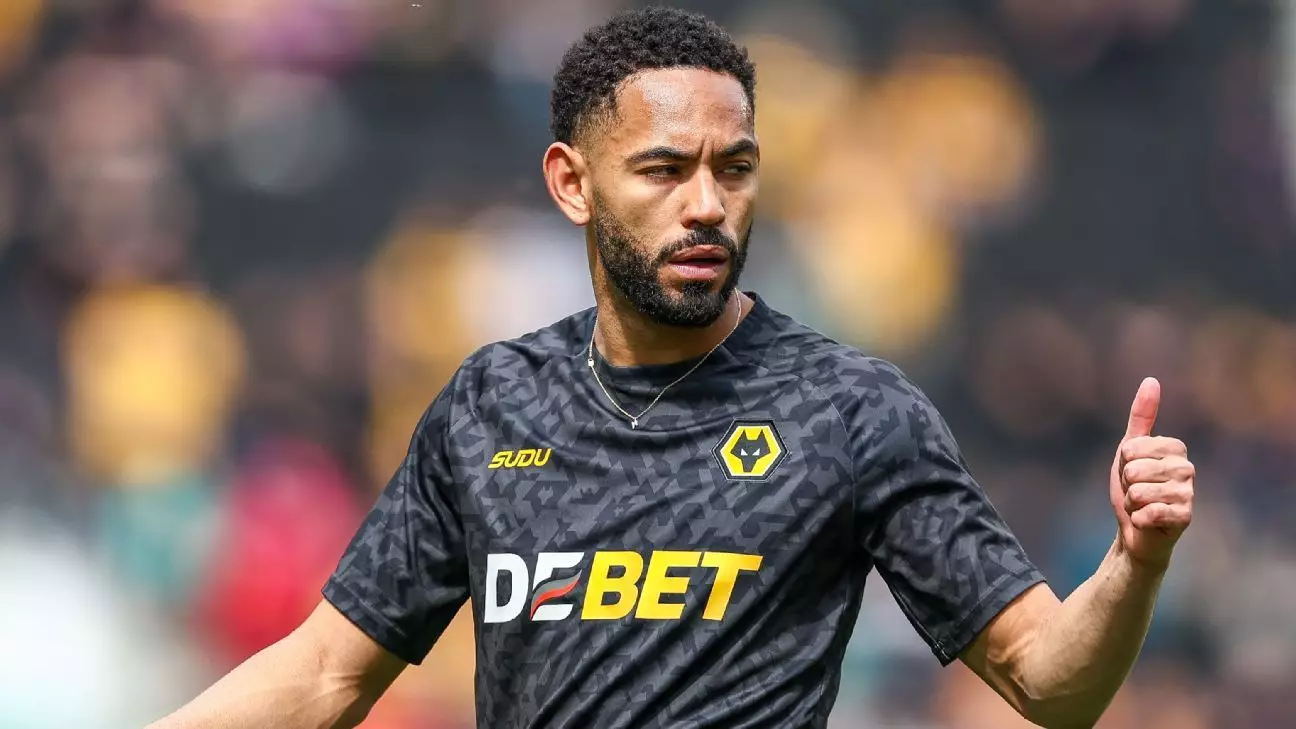In a landscape where every transfer window brings a flurry of excitement and speculation, Manchester United is making waves with its aggressive strategy to sign Wolverhampton’s attacking midfielder, Matheus Cunha. The Red Devils, historically a powerhouse in English football, have identified the 25-year-old Brazilian as a key asset for their revitalization efforts under new managerial directions. Reports suggest that United is prepared to activate Cunha’s substantial £63 million release clause, provided they can negotiate a payment structure that spans three to four seasons.
This strategic move highlights United’s need for dynamic scoring options, especially as Cunha has already showcased his talent with 15 league goals and six assists this season alone. His versatility and attacking prowess could be instrumental in revitalizing United’s midfield, potentially elevating them back to the top echelons of the Premier League. However, this ambitious pursuit raises inevitable questions: Can Cunha adapt to the storied Manchester United culture, and will Wolves permit such a transformative shift in their squad?
Newcastle’s Tactical Reinforcement with Kim Min-Jae
Meanwhile, Newcastle United is reportedly eyeing a significant signing to bolster their defensive line with Bayern Munich’s Kim Min-Jae. Valued at £40 million, the South Korean international stands out as a premier defensive player, able to contribute in critical matches. His experience on the grand stage, particularly in high-stakes situations, makes him a valuable target for the Magpies as they look to solidify their defensive capabilities moving forward.
Newcastle’s willingness to invest in experienced players like Kim signals a transformative ambition in their project under the current ownership. As they aim to establish themselves among the Premier League elite, bringing aboard seasoned players could provide the stability and expertise often crucial for success. With uncertainty hanging over Kim’s future at Bayern, Newcastle’s pursuit not only reflects their bold aspirations but also their intent to capitalize on vulnerabilities of top talents at rival clubs.
Manchester City Eyes Juventus’ Andrea Cambiaso
Moreover, Manchester City continues to refine its squad with an eye on Juventus’ wing-back Andrea Cambiaso. As the season unfolds, City’s interest signifies their commitment to maintaining a competitive edge and adaptability across all lines of play. Cambiaso, having established himself at Juventus with remarkable contributions, stands to add depth and dimension to City’s already multifaceted squad.
This potential transfer may have cascading effects on the football ecosystem, as Juventus explores alternatives for Cambiaso’s potential departure. With their sights set on Arsenal’s Nuno Tavares, the Bianconeri reflects a broader trend where clubs become entangled in a web of transfer maneuvers, seeking immediate solutions while anticipating fallouts from other deals.
Lazio’s Defensive Restructuring with Alessio Romagnoli’s Exit
In Italy, Lazio is contemplating significant changes in their roster, with centre-back Alessio Romagnoli possibly headed for the exit during the summer transfer window. At 30, Romagnoli has had a solid presence in Serie A, with 38 appearances to his name this season. However, with Lazio’s strategy pivoting towards rejuvenating their defensive structure, his reportedly hefty £3 million-per-season contract could become a financial liability.
This ambition to rebuild speaks volumes about the evolving nature of club philosophies regarding longevity versus immediacy in player performance. While Romagnoli has proven his worth, the necessity of adapting to the changing currents of football management cannot be overlooked. Engaging with the global talent market will be vital for Lazio as they shuffle their deck in pursuit of improved standings.
The Implications of Transfer Dynamics
These evolving narratives in football transfers serve as both a reflection of club ambitions and an essential commentary on how teams adapt to the increasingly competitive nature of the sport. Clubs like Manchester United, Newcastle, and others are not merely reacting to market trends—they are actively seeking to redefine their identities through judicious investments and a willingness to engage in strategic maneuverings.
Amid such dynamics lies an undercurrent of pressure for clubs to balance financial prudence with the obsession for immediate success. As the window for transfers looms, it becomes imperative for each entity to weigh the potential benefits against the risks involved, ensuring that their ambitions align with sustainable growth. In this intricate dance of negotiations and expectations, the future of football sees itself constantly reshaped by the choices made today, driving the narratives that fans and analysts will dissect for seasons to come.

